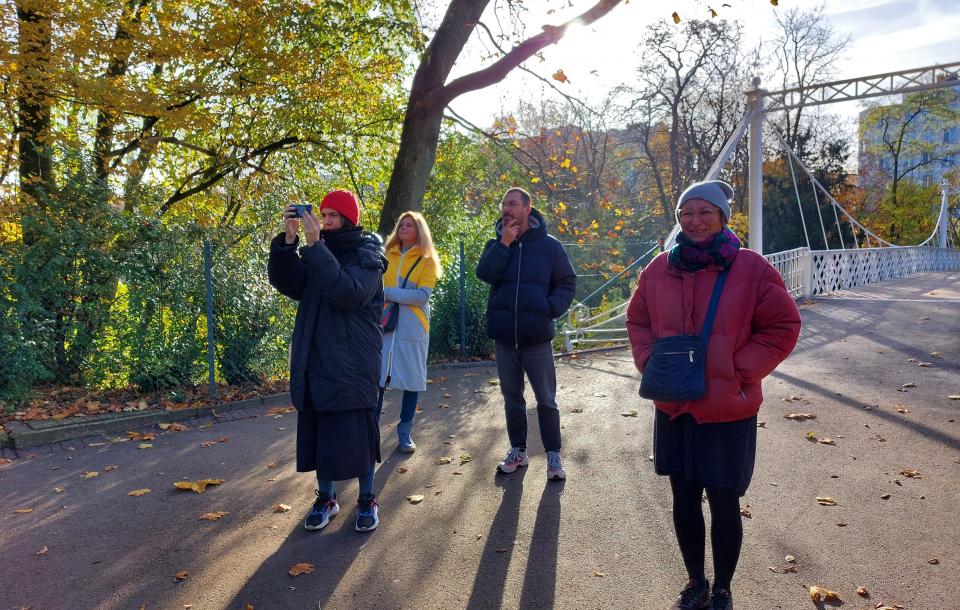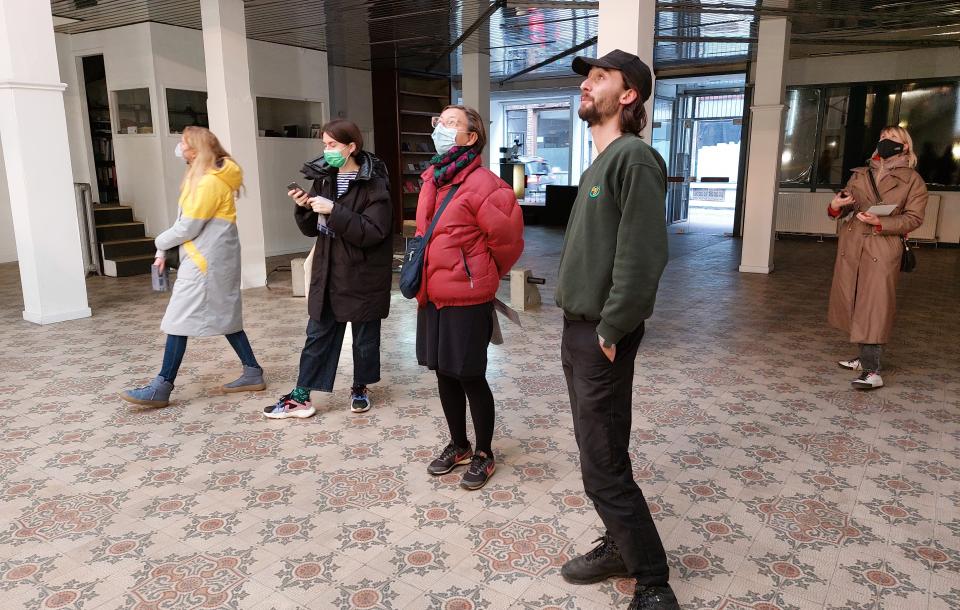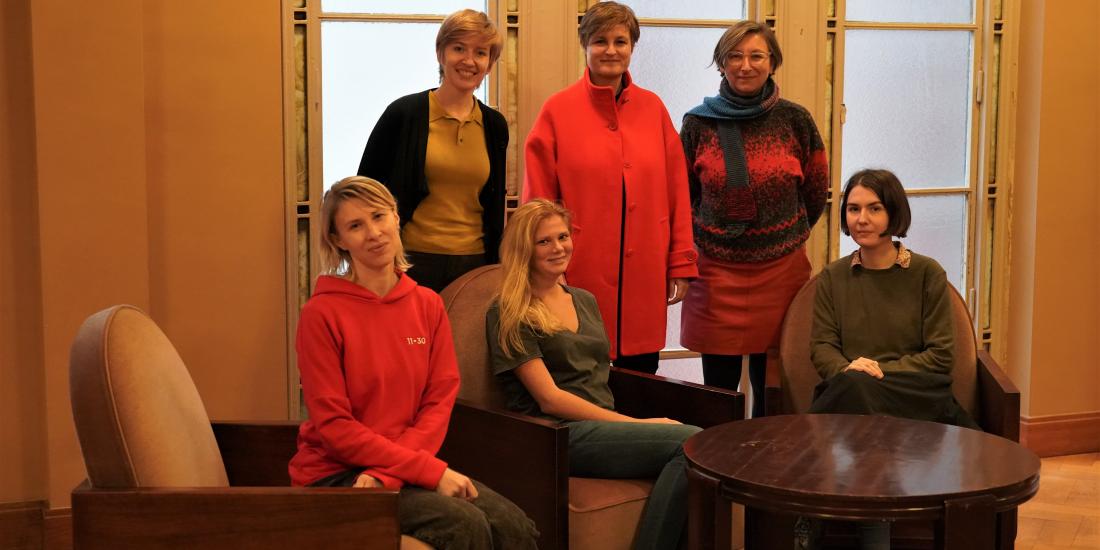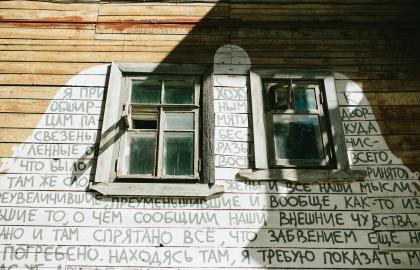In mid-November, Elizaveta Kukushkina from the St Petersburg Museum of History, Daria Malikova from the Ural Industrial Biennial in Ekaterinburg, and Elizaveta Ordinarzeva from the St Petersburg Museum of Non-Conformist Art visited Belgium. The objective was a week of immersion in the arts sector, in contact with some of our cultural institutions to understand how they have managed to create ongoing relationships with their social environment. The Russian delegation travelled through our country and met the key people in charge of various cultural and artistic institutions in the Kingdom, led by their Belgian counterparts, freelance curator Sonia Dermience, and Daria Bocharnikova and Tine Van Goethem, two specialists from Bozar.

This study week was part of a broader framework of Euro-Russian exchanges, Russian Turn, which is designed to promote dialogue between Russia and Europe, using art and culture to (re)connect East and West. Created in 2017, this exceptional programme, which aims in particular to strengthen partnerships between professionals working in museums and cultural centres in Europe and Russia, had as its theme this autumn, "The art of community building" and allowed our visitors to come into contact with a variety of Belgian organisations. The central question was what contemporary mediation can a cultural organisation offer to bring together the objet d’art, the artist and the public?
The three guests were able to discover a panorama of approaches that not only revealed the richness of the Belgian socio-cultural landscape, but also reflected the variety of a sector that is inventing new forms of interaction and co-creation between artists, institutions, local communities and different audiences. In Brussels, the Russian experts met the heads of classical cultural institutions such as Bozar, Kunstenpunt/Flanders Arts Institute, KANAL-Centre Pompidou, WIELS and the Maison d'Erasme, as well as of participatory institutions such as ZINNEMA, Komplot and Recyclart, which develop projects presented on the initiative of artists and the public. They were also able to benefit from the reflections and practices of other institutions and collectives based in Ghent, Antwerp and Liège.

After a busy week, they returned to Russia with some memorable ideas from their stay. Perhaps they will recall, for example, the reflections of curator Samuel Saelemakers (in charge of the art collection of the city of Antwerp) who, during their visit, underlined the importance of investing in the public space to create a link between art and the population, insisting on the need to question the contemporary role of monuments, the choice of the characters showcased by the city and our current relationship with the works of the past. Perhaps they will remember the reflections of Danielle van Zuijlen, curator of the Kunsthal in Ghent, who questioned the ways in which art is produced and exhibited and shared her experience of Endless Exhibition. Maybe they have taken with them the experiments and practices that Bozar has put in place by inviting young people to express their societal concerns artistically through Next Generation Please! or the animated concerts for young audiences. They will certainly discuss this with their Belgian partners from Russian Turn, who will in turn be able to discover the art ecosystem in Russia next June, when their Russian hosts will welcome them for a similar immersion.

